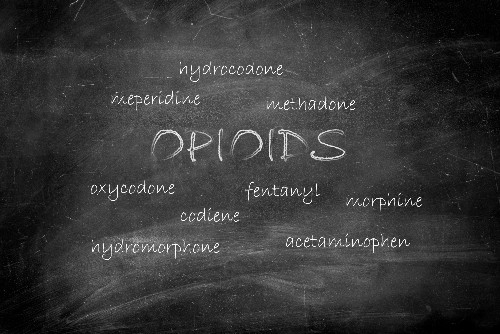Drugs change you. They don’t make you into a different person, but they have an intense, sometimes lasting impact on our bodies, making recovery difficult. Sometimes drugs can help you out, whereas others hurt you. Even more challenging, some of the beneficial drugs end up having side effects that harm you.
Medicine is a type of drug often prescribed by a doctor to help people feel better or help regulate their bodies. Unfortunately, some medicines have been abused. In some cases, people take medicine recreationally. Others took medicine, like opioids, as the doctor recommended, but built up a mental and physical dependence demanding more and more of the substance to feel okay.
In this article, we’ll explore opioids. We’ll look at what opioids are as well as symptoms and warning signs for opioid addiction.
Wait, What are Opioids?
Let’s start with what an opioid is. People often use the class of medicine known as opioids to help them relieve pain. The medicine helps people fee less pain by lowering the number of pain signals the brain receives from the body. Some common reasons for opioid prescriptions include:
- Chronic conditions (for example cancer)
- Injuries
- Surgeries
The following are some of the most common medicines or drugs considered to be opioids:
- Heroin
- Codeine
- Fentanyl
- Oxycodone (OxyContin)
- Morphine
- Tramadol
- Methadone
- Hydrocodone
- Hydromorphone
- Opium
- Oxymorphone
- Paregoric
- Sufentanil
Opioids are typically safe when you use them expressly following the doctor’s orders. However, when people go beyond the doctor’s recommendations, they can become addicted.
What is an Opioid Addiction?
Addiction is a condition impacting your brain and behavior. The condition begins with control over your actions, but the control begins to lessen over time. Your brain changes forming a psychological and physical need for the substances, such as opioids, even though the drug may cause harm to your mind and body.
Symptoms of Opioid Addiction
Knowing the symptoms of opioid addiction is important to fully understand the impact of the condition. One of the first symptoms is when you can’t stop using opioid medicine. Other symptoms of opioid addiction include:
- Abandoning responsibilities
- Anxiety attack
- Constipation
- Depression
- Drowsiness
- Euphoria (feeling high)
- Irritability
- Lowered motivation
- Mood swings
- Nausea, vomiting
- Physical agitation
- Poor decision making
- Poor Coordination
- Shallow or slow breathing rate
- Seeping more or less than normal
- Slurred speech
Finding a Safe Place with Sober Living
With the information above, you should have a better idea about what opioid addiction is, its symptoms, and what types of medicines are opioids. If you need a safe, clean place to live apart from the temptation of substances, consider Harmony Haus Sober Living. We are a community of addicts in recovery, supporting each other daily to live our best lives

